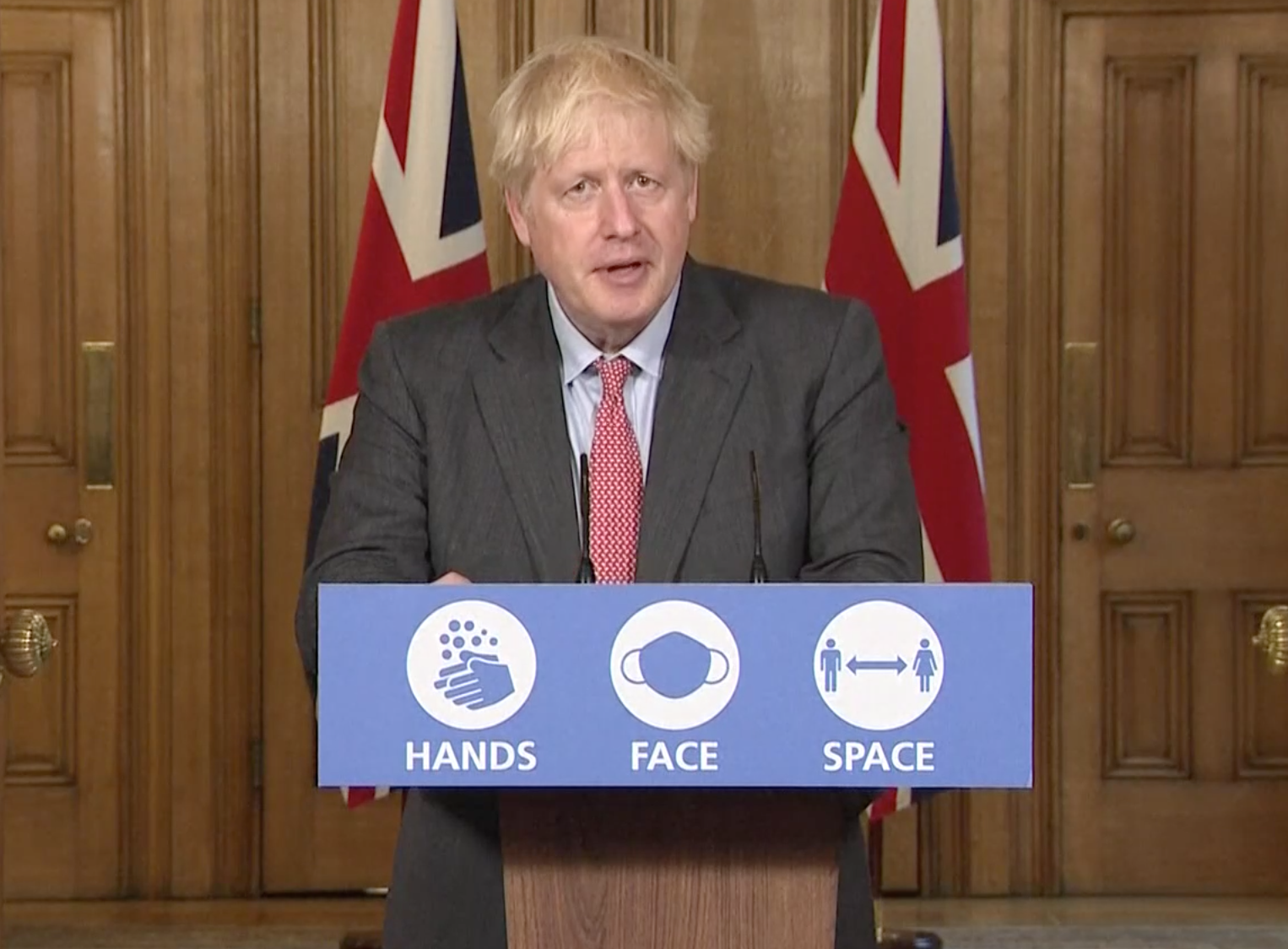Public trust in UK government coronavirus response sinking, study finds
But Scottish and Welsh administrations have maintained public confidence throughout pandemic

Your support helps us to tell the story
From reproductive rights to climate change to Big Tech, The Independent is on the ground when the story is developing. Whether it's investigating the financials of Elon Musk's pro-Trump PAC or producing our latest documentary, 'The A Word', which shines a light on the American women fighting for reproductive rights, we know how important it is to parse out the facts from the messaging.
At such a critical moment in US history, we need reporters on the ground. Your donation allows us to keep sending journalists to speak to both sides of the story.
The Independent is trusted by Americans across the entire political spectrum. And unlike many other quality news outlets, we choose not to lock Americans out of our reporting and analysis with paywalls. We believe quality journalism should be available to everyone, paid for by those who can afford it.
Your support makes all the difference.Confidence in the UK government's handling of the Covid-19 pandemic has slumped dramatically as the crisis has unfolded, a damning study has found.
Researchers from University College London (UCL) found that the proportion of people in England distrusting Boris Johnson's handling of the crisis has doubled in the six months since the start of lockdown, with more than half now sceptical.
The most sceptical group, saying they have "no confidence at all" in the government's handling has risen four-fold and now covers more than a quarter of all respondents.
But the fall in confidence in the UK government doesn't seemed to have been mirrored in the public's attitude towards the Scottish and Welsh administrations led by Nicola Sturgeon and Mark Drakeford.
In both devolved nations, confidence has actually improved, with those saying they had no confidence in the Scottish response falling from 33 per cent in March to 27 per cent in September. The corresponding figure in Wales fell from 26 per cent to 25 per cent.
The findings come after a long string of poorly-executed or conceived policies around ventilators, testing, and contact tracing – as well as increasingly illegible rules.
Apparently contradictory policies such as encouraging people to eat out while imposing new curfew restrictions on pubs have also raised eyebrows.
High-profile breaches of lockdown regulations by people like Dominic Cummings and Boris Johnson's father Stanley Johnson may also have contributed to the breakdown in trust.
"Confidence levels in the Government have decreased markedly in England since the beginning of lockdown," lead author Dr Daisy Fancourt said.
"This loss of confidence could be down to perceived government mismanagement of the pandemic coupled with a high number of Covid-19 cases in England.
"Early easing of lockdown in England and scandals such as government adviser Dominic Cummings' journey to Barnard Castle appear to have contributed to the fall."
Confidence in the UK government was worst in the most recent period covered by the study, the end of September - suggesting perceptions have been getting worse. The findings echo similar evidence produced by opinion polls.
Some 56 per cent of the public recently reported having no confidence on balance in the Covid-19 response, up from 25 per cent at the start of lockdown on March 23.
The sharpest falls in confidence appeared to have happened in April towards the end of lockdown and as it was eased in May, coinciding with coverage of Dominic Cummings regulation-breaking trip to Barnard Castle.
Just 6 per cent of people said they had no confidence at all in the Government's handling in March, but this has increased to 27 per cent.
Dr Fancourt said: "The rising numbers of cases could also be to blame for the loss of confidence in Scotland and Wales, although both Scottish and Welsh devolved governments have seen a smaller reduction in confidence than the UK Government.
"This loss of confidence is deeply concerning as it is related to people's willingness to follow guidelines and rules. It is vital that the Government listens to people's concerns and tries to rebuild people's trust."
UCL's Covid-19 social study surveyed more than 70,000 respondents over 28 weeks to understand the effects of the pandemic on public opinion.

Join our commenting forum
Join thought-provoking conversations, follow other Independent readers and see their replies
Comments